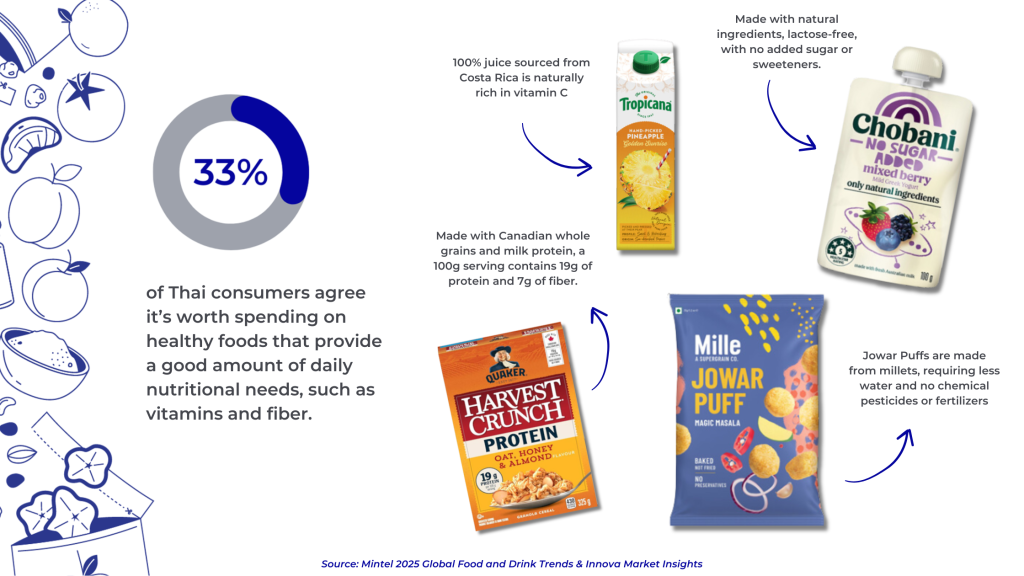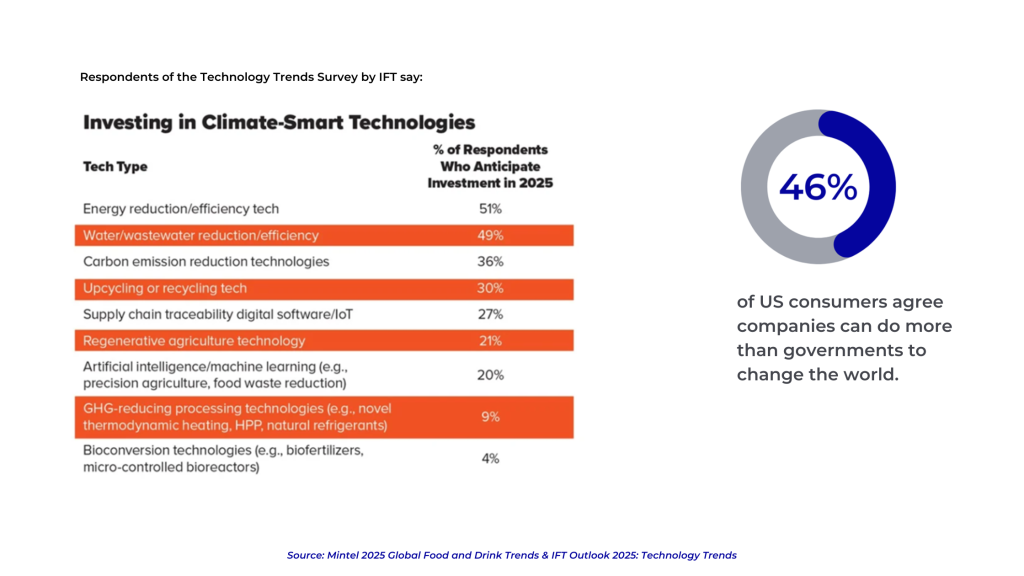Trends and Technologies Shaping the Food Industry
Manufacturers face the challenge of meeting consumer demands for quality, innovation, and sustainability while navigating complex supply chain issues. Let’s explore the key trends and technologies that are transforming food production in 2025, and how EnWave’s Radiant Energy Vacuum (REV™) technology is addressing these challenges.
Consumer-Driven Innovation
Food as Medicine
As we approach 2025, consumers are increasingly viewing food as a means to improve their health. Brands are responding by focusing on critical nutrients in health claims, emphasizing inherent health benefits, and prioritizing claims with obvious benefits like energy, digestion, and satiety. This trend appeals to cost-conscious consumers looking for functional foods that offer more than just sustenance.
For instance, Quaker Harvest Crunch combines Canadian whole grains and milk protein to deliver 19g of protein and 7g of fiber per 100g serving. Jowar Puffs, made from millets, offer a sustainable snack option that requires less water and no chemical pesticides or fertilizers.

Indulgence Meets Innovation
The food industry is witnessing a surge in collaborations aimed at satisfying consumer cravings for novelty. Crunchy textures are trending across various product categories, and over half of global consumers are interested in flavor fusions. Brands are focusing on surprising and indulgent experiences to stand out in the market.
Sustainability: A Core Focus
Sustainability has become a central concern in food manufacturing. Key innovation strategies include precision agriculture, circular bioeconomy practices, sustainable sourcing and packaging, plant-based innovations, and digital solutions to enhance supply chain efficiency.
The agriculture tech sector saw a record $5.6 billion investment in 2022, driving innovations like lab-grown meat, vertical farming, and fruit-picking robots. These advancements are set to enhance efficiency and reduce the environmental impact of food production.
Navigating Supply Chain Challenges
Global food supply chains continue to face disruptions from climate change, geopolitics, and cyber threats. Cross-industry collaboration and scalable tech solutions are necessary but complex. Brands must prepare solutions and clearly communicate sourcing adjustments to maintain consumer trust.

REV™: A Solution for the Future
EnWave’s Radiant Energy Vacuum (REV™) technology addresses many of these industry challenges, offering a viable solution for the future of food manufacturing.
Fast, Gentle Drying
REV™ technology allows manufacturers to go from fresh to dry in hours, not days, with an innovative drying process suitable for nearly every organic material. This rapid processing helps maintain product quality and reduces production time.
Superior Control and Consistency
The closed-loop, volumetric drying process of REV™ technology enables manufacturers to reliably achieve optimal moisture percentage and even distribution for their products. This level of control ensures consistent quality across production batches.
Higher Quality Products
REV™ technology preserves natural colors, flavors, aromas, and nutrients without the use of additives or preservatives. This aligns with consumer demands for clean label products and supports the “food as medicine” trend.

Reduced Environmental Impact
With up to 30% less space required than traditional drying methods, REV™ technology offers a reduced footprint. It’s also environmentally responsible, with minimal carbon footprint and high energy and water efficiency. Additionally, it supports upcycling of produce, contributing to circular economy efforts.
In conclusion, as the food manufacturing industry evolves to meet changing consumer demands and address sustainability concerns, innovative technologies like EnWave’s REV™ are playing a crucial role.
By offering solutions that improve product quality, increase efficiency, and reduce environmental impact, REV™ technology is helping manufacturers navigate the challenges of today while preparing for the future of food production. Contact us to learn more about our solutions.


